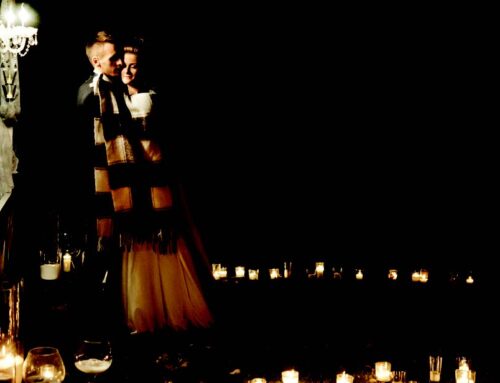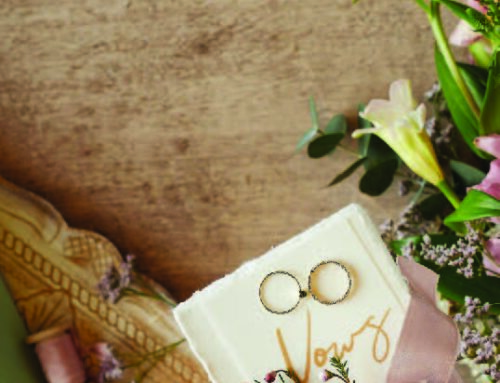CELEBRATING LOVE WITH SUSTAINABILITY
As couples become more conscious of their environmental impact, eco-friendly weddings are gaining popularity. A sustainable wedding focuses on reducing waste, supporting ethical vendors, and making mindful choices that minimize harm to the planet while still creating a beautiful and memorable celebration. With careful planning, couples can host a stunning wedding that reflects their values and love for nature without compromising on style or elegance.
CHOOSING A SUSTAINABLE VENUE
One of the most impactful ways to reduce a wedding’s carbon footprint is by selecting an ecofriendly venue. Outdoor locations such as botanical gardens, vineyards, beaches, or forests embrace natural beauty, reducing the need for excessive decorations. Many eco-conscious venues prioritize sustainability by using solar power, composting waste, and sourcing food locally. Holding both the ceremony and reception at the same location can also cut down on transportation emissions for guests.
ECO-FRIENDLY INVITATIONS & STATIONERY
Paper waste is a significant contributor to weddingrelated environmental impact. Couples can opt for digital invitations, which eliminate paper waste while still offering elegant and customizable designs. For those who prefer physical invitations, choosing recycled paper, plantable seed paper, or soy-based inks can help reduce environmental harm.
SUSTAINABLE CATERING CHOICES
Food waste and sourcing practices play a major role in a wedding’s sustainability. Choosing a farm-totable catering service ensures that ingredients are fresh, locally sourced, and organic. Plant-based or vegetarian menus can further reduce the carbon footprint, as meat production has a significant environmental impact. Additionally, couples can work with caterers to donate leftover food to local shelters or compost organic waste.
ETHICAL WEDDING ATTIRE
The fashion industry is known for its environmental impact, but couples can make ethical choices when selecting wedding attire. Sustainable options include:
- Wearing a second-hand or vintage wedding dress
- Renting formalwear instead of purchasing new
- Choosing brands that use organic, fair-trade, or recycled fabrics
- Supporting designers who prioritize ethical labor practices
- Bridesmaids and groomsmen can also wear outfits that can be reused for future occasions, rather than single-use attire.
ECO-CONSCIOUS DÉCOR AND FLORAL ARRANGEMENTS
Décor plays a key role in wedding aesthetics, but many decorations are discarded after the event. To minimize waste, couples can:
- Rent decorations such as linens, tableware, and furniture instead of buying new
- Use potted plants or dried flowers instead of cut flowers, allowing guests to take them home or replant them
- Incorporate LED or solar-powered lighting
- Avoid plastic-based decorations and opt for biodegradable materials
For floral arrangements, working with local florists who use organic and pesticide-free flowers can help reduce environmental impact. Donating floral arrangements to hospitals or nursing homes after the wedding also extends their use.
REDUCING WASTE WITH THOUGHTFUL FAVORS
Many wedding favors go unused or end up in landfills. Instead of traditional gifts, couples can offer sustainable favors such as:
- Seed packets for guests to plant at home
- Locally sourced honey, jams, or handmade soaps
- Reusable tote bags or bamboo utensils
SUSTAINABLE SEND-OFFS
Traditional send-offs often include rice, confetti, or balloons, which can harm wildlife and the environment. Alternatives include:
- Biodegradable confetti made from dried flower petals or leaves
- Eco-friendly bubbles
- Sparklers for a dazzling yet waste-free send-off
CONCLUSION
An eco-friendly wedding proves that sustainability and elegance can go hand in hand. By making mindful choices—from venue selection to catering and décor—couples can celebrate their love while protecting the planet. Thoughtful planning not only reduces waste but also creates a wedding experience that is meaningful, ethical, and inspiring for future generations.






